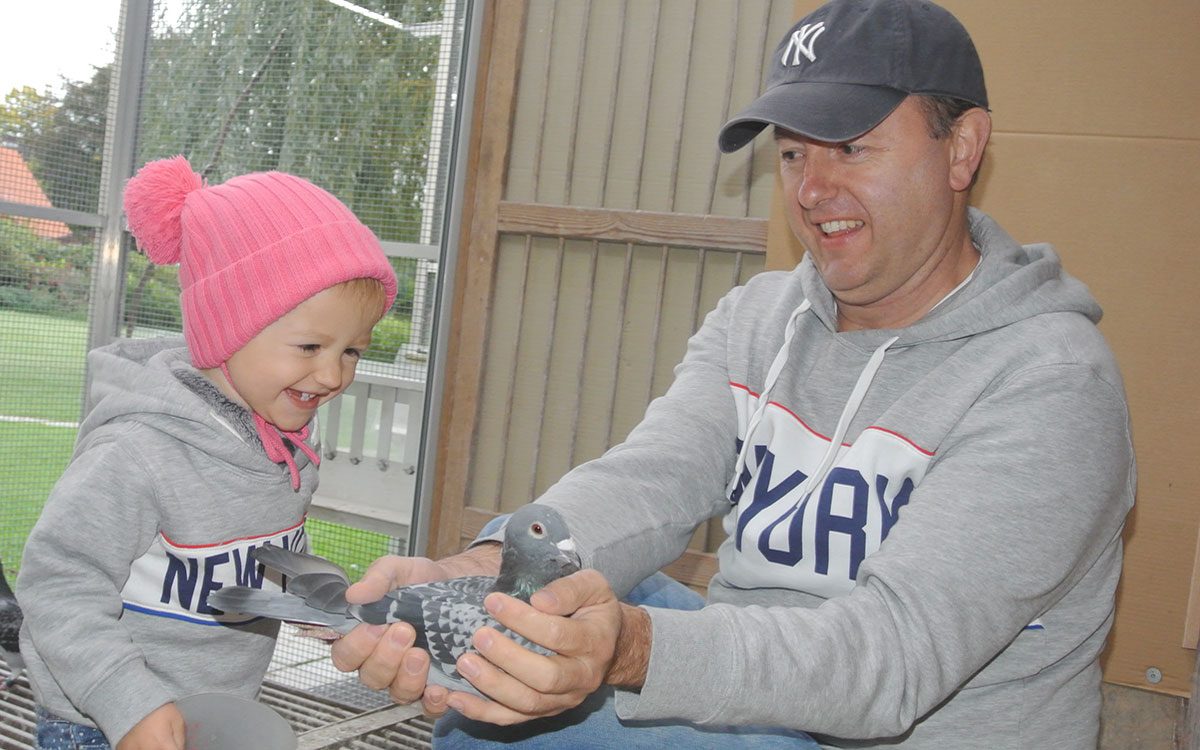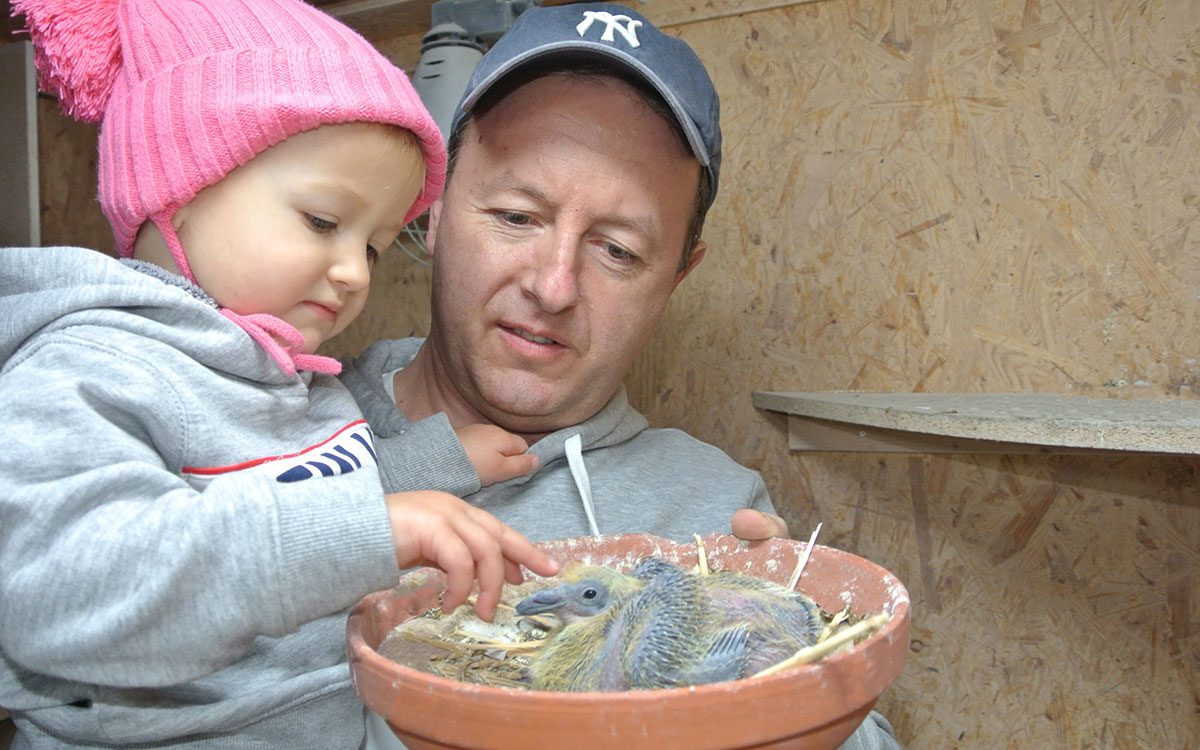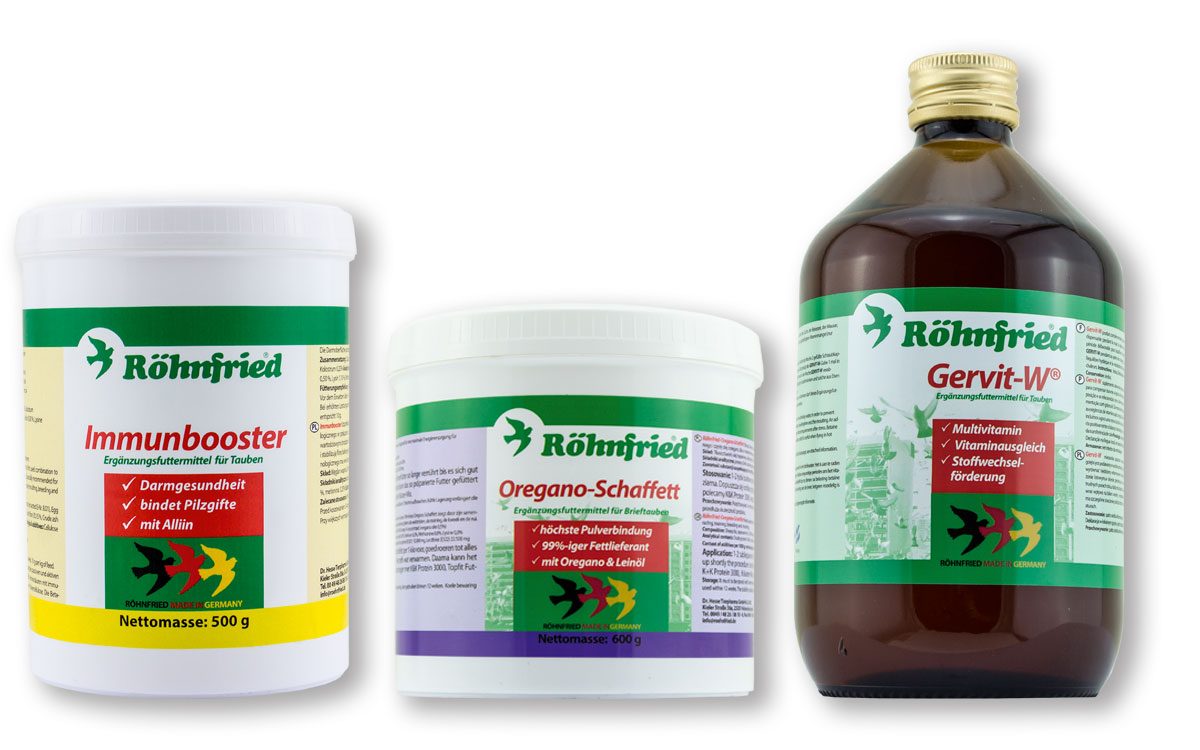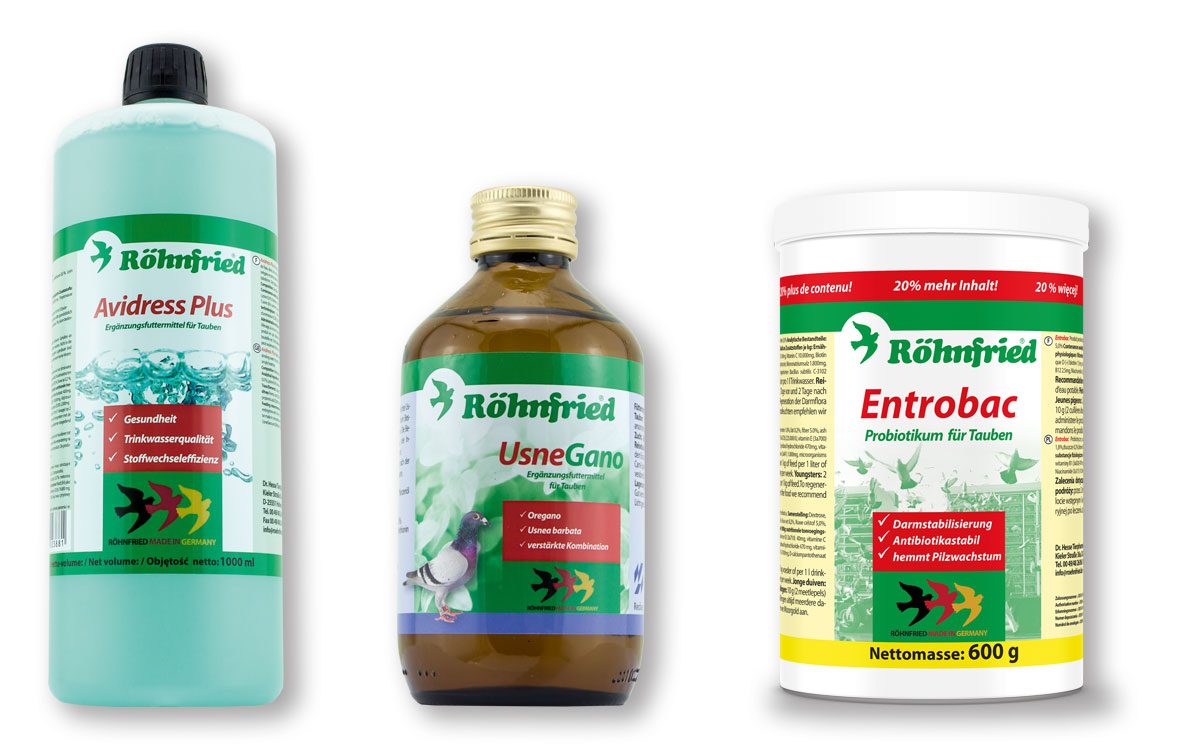A report by Alfred Berger

Feeding concept breeding
“During the rearing of the young, I regularly administer Oregano-Schaffett together with Immunbooster. Thus, I achieve that old breeding pigeons remain in the best breeding condition even in very cold temperatures and the young pigeons build up a good immune system.”
The quality of young pigeons is a direct consequence of optimum nutrition. What’s crucial for breeding is whether the performance potential can develop to the full. For this reason, it’s not enough to invest in the best and healthy parents, you must also ensure that the breeding animals receive the best possible nutrition at all times. With the feeding concept outlined below you leave nothing to chance. The result of these efforts are perfectly developed young pigeons. The feeding concept is based on a reduced amount of the difficult-to-digest peas and instead includes more high-quality and easily digestible toasted soy beans and seeds such as hemp, which are rich in valuable linoleic and linolenic acids. The optimised feeding concept also includes as vitamins, minerals, trace elements and amino acids for best breeding performance. Especially when preparing for breeding the focus should be in administration of vitamin E.

Tip: Gradually convert to breeding food before breeding no later than 5 days prior to coupling. After egg laying and until shortly before hatching up to 50 % winter food can be fed. Winter breeding: Especially during the cold time of the year, the optimised feeding concepts will promote regular egg laying, high fertilisation and hatching rates as well as a healthy and quick development of the young.


Feeding concept winter resp. rest
“The pigeons stay healthier with the products of Röhnfried. Since I am feeding Avidress Plus and UsneGano, I have no more load with trichomonads” Albert Derwa-Luxem
The winter can be used to get the animals in the best possible condition for breeding and racing after moulting. Vaccinations are also carried out in winter. Only if the pigeons are fed properly including all essential nutrients is it possible for vaccines to work properly and for immunoglobulins (antibodies) to develop. This includes optimum feeding in the long term and intermittent administration of feed supplements that support the immune system. Furthermore, the feeding concept for the winter phase is based on high-fibre with a high percentage of filling crude fibre. Protein content is reduced to avoid metabolic strain. Dosed administration of vitamins and trace elements in the winter ensures the best possible preparation, especially before and after vaccinations. Proper drinking water hygiene should also be part of any feeding concept during the rest and winter period.
Tip: After moulting and until coupling feeding should be kept to a minimum.



Dear Sirs/Madame,
I would like to know if you have any product which is similar to Nifuramicyn or if you replaced Nifuramicyn with another new product with the same proprieties?
Looking forward for your answer!
Regards,
C Profir
Dear Cristian,
the goal of modern animal husbandry is to avoid antibiotics as much as possible.
This is especially important because of the risk of resistance formation.
That is why chemotherapeutic agents such as antibiotics are no longer available for our pigeons on the open market.
If your animals are ill, you can certainly get help from the professional vets and pharmacies in your country.
If your veterinarian does not have the opportunity to prescribe nifuramycin, please ask him specifically for a preparation for the respiratory tract and intestinal inflammation.
So that the pigeons do not even get ill or fight infections independently successfully, we recommend hygiene and strengthening measures to reduce the infection pressure and for the immune system. In addition, our vitamin supplement Gervit W is excellently suited to support and to cover the increased vitamin requirement after exposure.
For more information you can download our English-speaking Röhnfried Courier with many tips here:
https://roehnfried.com/download/ >> https://roehnfried.com/wp-content/uploads//2019/01/Ro%CC%88hnfried-Courier-2019_ENG_web.pdf
Best regards
Your Röhnfried Team
Can you please tell me if it is good to give breeding pigeons sedachol when youngsters in the nest are around 10 days old ?? Or younger